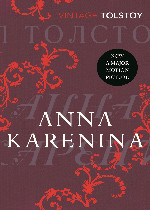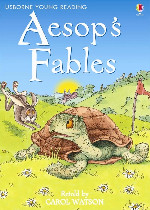
Anna Karenina (Анна Каренина) is a novel by the Russian writer Leo Tolstoy, published in serial installments from 1873 to 1877 in the periodical The Russian Messenger. Tolstoy clashed with editor Mikhail Katkov over political issues that arose in the final installment; therefore, the novel's first complete appearance was in book form in 1878. Widely regarded as a pinnacle in realist fiction, Tolstoy considered Anna Karenina his first true novel, after he came to consider War and Peace to be more than a novel.

Aesop was a Greek storyteller born in approximately 620 BCE. Tradition says he was born as a slave, but developed a real talent for fables that were used to teach truths in a simple, understandable way. While Aesop was revered for his abilities, it is almost certain that many of the fables attributed to him were actually written by countless people over the ages. The fame garnered by Aesop is such that some scholars question whether he was a real person at all. (Presumably, a slave in ancient Greece would have been hard-pressed to attain the fame that Aesop did.) Be that as it may, Aesop is referred to by ancient luminaries such as Aristotle, Herodotus, and Plutarch. His fables (or those attributed to him) have been translated around the world and are the substance of numerous stories, poems, and children's books.